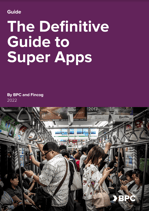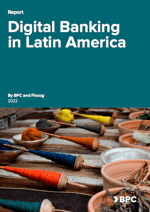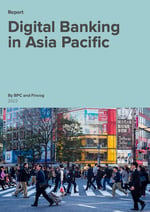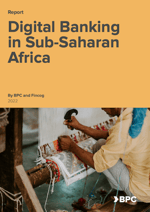As digital transformation sweeps across the globe, a new financial paradigm, known as Open Banking, is gaining traction. It represents a shift towards a more integrated, customer-centric approach to banking, empowered by technology and data sharing.
The Success of Open Banking in Europe
Europe is pioneering the Open Banking revolution, positioned as the world's best-performing region according to a recent Mastercard study. Key to its success has been the introduction of groundbreaking regulations, such as PSD2 (Payment Services Directive 2), which aims to increase competition and participation in the payments industry from non-banks, fostering innovation and enhancing consumer protection.
Simultaneously, initiatives like the SEPA (Single European Payments Area) SPAA have proven instrumental in propelling open payments in European banking. This framework, by standardising electronic payments across the Eurozone, unlocks unprecedented value for banks, their customers, and intermediaries like fintechs and other financial services firms.
Digital identity platforms, such as Norway's BankID, further underscore Europe's advancement. By granting citizens access to services ranging from healthcare and welfare payments to e-commerce, these platforms not only streamline services but also strengthen security.
The UK's Leadership in Open Banking Implementation
The UK has demonstrated remarkable prowess in implementing Open Banking, a reputation it aims to enhance with the 2023 introduction of variable recurring payments (VRP). This progression underlines the continuous innovation ingrained within the UK's approach to Open Banking.
Open Banking in the United States
The U.S. has charted its unique path towards Open Banking, predominantly led by the finance industry. Instead of legislating the concept, it has capitalised on bi-lateral agreements between Open Banking platforms, banks, and tech providers. These partnerships aim to open APIs and establish consumer consent protocols, aligned with standards set by bodies like the Financial Data Exchange (FDX).
Open Banking in Brazil
In Latin America, Brazil stands out with its extraordinary Open Banking journey. Since introducing legislation in 2021, Brazil has diligently followed a four-stage plan, culminating in the integration of Open Banking into new areas like insurance and pensions. Significant implementations such as the WhatsApp and Cielo partnership, enabling in-app P2P payments and instant B2B payments, mark the impressive progress.
Open Banking in Asia: China, Hong Kong, and Australia
Asia's adoption of Open Banking has been no less remarkable. China, powered by enormous growth in P2P money transfers via WeChat and AliPay, has leveraged these platforms to introduce further financial services, compelling the regulator to recalibrate the fintech-banks relationship.
Regulators in Hong Kong and Singapore have pioneered their Open Banking platforms, keeping a keen eye on open API implementations. Australia, meanwhile, looks to the UK for inspiration, laying out an ambitious Open Banking transition program.
The Future of Open Banking: Global Impact and Potential
Open Banking is rapidly transcending boundaries, becoming a truly global phenomenon. It fosters innovation, drives competition, and unlocks new value chains, shaping a future where banking is transparent, integrated, and tailored to individual consumers' needs.
In Europe, we have seen how regulation can provide a fertile ground for advancements, while the U.S. model demonstrates how industry-led initiatives can achieve similar objectives. Brazil's ambitious four-stage plan has shown how developing economies can leverage Open Banking to accelerate their financial inclusion agendas.
Meanwhile, Asia offers a glimpse into a future where tech giants play a significant role in the banking sector, using their platforms to deliver innovative financial services and products. These examples from around the globe underscore the adaptability and potential of Open Banking.
As we look to the future, it's clear that Open Banking will continue to evolve. With the rise of technologies like AI and machine learning, the potential for more personalised and predictive banking services is vast. Moreover, the growth of Open Banking could further boost financial inclusion, making banking and financial services more accessible to unbanked populations worldwide.
The integration of Open Banking into areas like insurance, pensions, and investments, as we see happening in Brazil, points to a future where Open Banking principles are applied across the entire financial services sector. This transformation holds great promise, not just for individual consumers, but also for businesses and economies.
As the world continues to learn and adapt, the promise of Open Banking holds untapped potential, ready to revolutionise the way we perceive and interact with financial services. The challenge now is to ensure that this revolution delivers on its promise, maximising benefits for consumers while ensuring data security and privacy.





